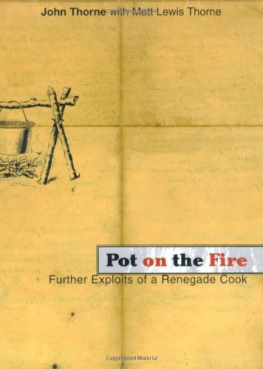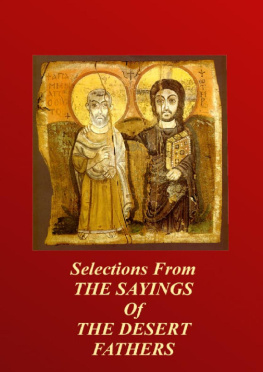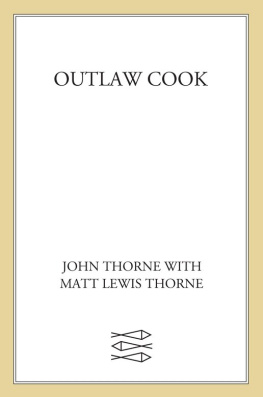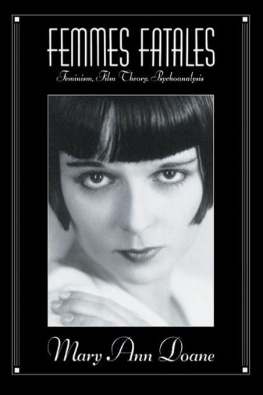MARY WARD
FIRST SISTER OF FEMINISM
For Omi
MARY WARD
FIRST SISTER OF FEMINISM
SYDNEY THORNE
First published in Great Britain in 2021 by
PEN AND SWORD HISTORY
An imprint of
Pen & Sword Books Ltd
Yorkshire Philadelphia
Copyright Sydney Thorne, 2021
ISBN 978 1 39900 523 4
eISBN 978 1 39900 524 1
Mobi ISBN 978 1 39900 524 1
The right of Sydney Thorne to be identified as Author of this work has been asserted by him in accordance with the Copyright, Designs and Patents Act 1988.
A CIP catalogue record for this book is available from the British Library.
All rights reserved. No part of this book may be reproduced or transmitted in any form or by any means, electronic or mechanical including photocopying, recording or by any information storage and retrieval system, without permission from the Publisher in writing.
SJmagic DESIGN SERVICES, India.
Pen & Sword Books Limited incorporates the imprints of Atlas, Archaeology, Aviation, Discovery, Family History, Fiction, History, Maritime, Military, Military Classics, Politics, Select, Transport, True Crime, Air World, Frontline Publishing, Leo Cooper, Remember When, Seaforth Publishing, The Praetorian Press, Wharncliffe Local History, Wharncliffe Transport, Wharncliffe True Crime and White Owl.
For a complete list of Pen & Sword titles please contact
PEN & SWORD BOOKS LIMITED
47 Church Street, Barnsley, South Yorkshire, S70 2AS, England
E-mail:
Website: www.pen-and-sword.co.uk
Or
PEN AND SWORD BOOKS
1950 Lawrence Rd, Havertown, PA 19083, USA
E-mail:
Website: www.penandswordbooks.com
Acknowledgements
I would like to thank Mark-Peter Holbek, Dr. Gabriele Kliegl, Ursula Pachlatko-Zrcher, Patrick Scanlan, Andrew Thorne, Irmgard Thorne and Nicky Thorne for reading the manuscript and raising interesting questions which led to the improvement of the text.
My hearfelt thanks too to Theodora Hawksley and Sr. Patricia Harriss CJ for lively discussions about Mary Ward, for insights into her mission and for granting me access to the Bar Convent library in York, and to Dr. Danna Messer and all the team at Pen and Sword for publishing the book.
And thank you Irmgard, Miranda, Lara and Nicky for putting up for so many years with a husband and dad so obsessed with Mary Ward.
Cast of main characters
Marys family
Parents: Marmaduke Ward, Ursula Wright
Siblings: Frances Ward, Barbara Ward, Elizabeth Ward
Marys childhood guardians
Ursula and Robert Wright, the parents of Christopher and Robert Wright Katherine Ardington
Sir Ralph and Lady Grace Babthorpe, the parents of Barbara Babthorpe
Marys first companions
Barbara Babthorpe
Jane Browne
Mary Poyntz
Susannah Rookwood
Catherine Smith
Barbara Ward
Winefrid Wigmore
Marys later companions
Frances Bedingfield
Frances Brookesby
Elizabeth Cotton
Catherine Dawson
Anne Gage
Margaret Genison Margaret Horde Elizabeth Keyes Mary Ratcliffe Anne Turner (nurse)
Joyce Vaux
Backers of Marys Institute
Father John Gerard, English Jesuit priest, later rector of the Jesuit college in Lige
Father Roger Lee, English Jesuit priest in St Omer Jacques Blaes, Bishop of St Omer
Albert and Isabella, Habsburg Archdukes in Brussels
Ferdinand of Wittelsbach, Prince-Archbishop of Lige and Cologne Lothar von Metternich, Prince-Archbishop of Trier
Father Domenico di Gesu e Maria, Dominican monk Antonio Albergati, papal nuncio in Cologne Napoleone Comitoli, Bishop of Perugia Peter Pazmany, Archbishop of Bratislava Maximilian Wittelsbach, Duke of Bavaria Ferdinand, Habsburg Holy Roman Emperor
In Rome
Pope Gregory XV
Pope Urban VIII
Juan Bautista Vives, Isabellas ambassador in Rome Mutius Vitelleschi, Jesuit father general Francesco Ingoli, secretary of Propaganda Fide Francesco Barberini, nephew of Pope Urban VIII
Opponents of Marys Institute
Melchior Klesl, Archbishop of Vienna Ernst Adalbert von Harrach, Archbishop of Prague
Giovanni Pallotto, papal nuncio in Prague
Pier Luigi Carafa, papal nuncio in Lige and Cologne
Henry Silisdon, rector of the English Jesuit Novitiate in Lige
William Harrison, John Bennett, Thomas Rant: agents of the English clergy in Rome
1
Why Mary Ward?
Mary who?
Four hundred years ago in October 1621 a Yorkshire woman called Mary Ward set off on a long, long walk from Brussels to Rome. She walked across a Europe in the throes of the Thirty Years War, made her way over the Alps in winter and completed her epic 1,500 mile journey in only eight weeks.
It was, of course, highly unusual for a woman to undertake such a journey in the early seventeenth century. But Marys reason for travelling was, if anything, even more extraordinary than the journey itself. Her aim was to persuade one of the most powerful men in Europe, the pope, to grant her, a woman, some of the rights and freedoms enjoyed by men. It was rare indeed for a woman to seek an audience with the pope, rarer still for a petitioner of either sex to challenge the pope on a point of doctrine. But Mary Ward was confident of her case. She had chutzpah.
What moved Mary Ward was a passion that is surprisingly modern: she saw the crying need for girls to be educated to the same standard as boys, and was appalled by the almost total absence of girls schools. Within the previous century the Jesuits had established schools for boys across Europe and as far afield as Persia, Florida, Brazil and Japan. Very well, then: if the Jesuits could achieve this for boys, she would do the same for girls. It was a given that the teachers in boys schools were male, so the teachers of girls must be women. But that meant that Mary and her female teachers must enjoy the same freedom of organisation as the Jesuit teachers. Hence her journey to Rome to see the pope. Her appeal for more freedoms for women was born from the practical realisation that if a network of girls schools was to be set up across Europe and the world, then women must be given the freedom of action to achieve this. If Mary Ward was a visionary, she was a strictly practical one. Not a dreamer, but a do-er with big dreams.
they were called were at any moment subject to house searches, punitive fines and imprisonment.
Thwarted by the penal laws that imposed restrictions and fines on anyone who did not toe the Church of England line, Mary Ward slipped out of the country and, within a few years, set up four girls schools in four different European cities. And they were free. Indeed, they were among Europes first ever free schools for girls.
What did Mary teach her girls? Sure, there was reading, arithmetic and needlework, as we may expect, but also Latin, modern languages and drama, subjects which were traditionally reserved for boys. In an age when female roles in Elizabethan theatre were still taken by men, this makes Mary Ward one of the first recorded people to put English girls on stage. And over and above setting up the schools themselves, Mary had to recruit women with the ability to teach in the schools and organise their training as there was no existing system she could tap into. Not bad for a woman who was only 36 years old.












![Thorne - Thats not how you wash a squirrel : [a collection of new essays and emails]](/uploads/posts/book/95081/thumbs/thorne-that-s-not-how-you-wash-a-squirrel-a.jpg)
